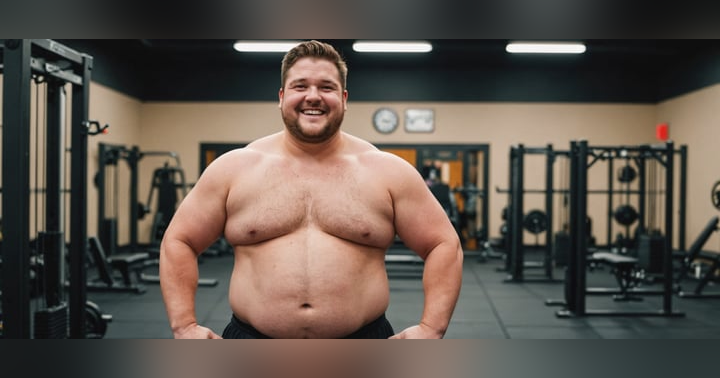Embrace Healthier Gay Relationships Without Emotional Dependency

Should My Happiness Hinge on Whether a Guy Texts Me Back? Absolutely Not.
Codependency is a term that many of us encounter in relationships, often without realizing it. I wasn’t familiar with the concept when I started dating, but once I learned about it, it struck a chord, especially regarding anxiety and attachment issues.
Codependency is characterized by excessive emotional or psychological reliance on a partner, typically one who needs support due to illness or addiction. Informally termed relationship addiction, it involves forming or maintaining a one-sided, emotionally destructive, or abusive relationship.
It’s a broad concept and doesn’t fit neatly into a single scenario. The essence is excessive reliance on your partner, which goes beyond mild neediness and impacts your well-being and emotional health, driven by the desire to please and stay connected.
Insights from Codependent No More
The first time I encountered the concept of codependency was through Melody Beattie’s book, Codependent No More, published in 1986. At that time, the term codependent was relatively new. The book explored why individuals in relationships with alcoholics stayed despite emotional abuse and absence.
Beattie’s work, filled with case studies including her own experiences, illustrates how codependents often endure bad behavior and enable addiction out of fear of losing their partner. They become obsessed with controlling their partner’s behavior, which usually ends up being detrimental to their own well-being.
Beattie’s key message is that helping a partner is different from adopting their problems as your own. Over-involvement leads to anxiety and neglect of self-care, impacting both emotional and physical health.
Ties to The Velvet Rage
Reflecting on this as a gay man, I see connections to what we covered previously with The Velvet Rage by Dr. Alan Downs. Growing up with hidden sexuality and a lack of healthy self-representation can lead to low self-esteem, which can result in forming too intense an emotional attachment too quickly, channeling codependent behavior.
Recognizing Codependent Traits
Beattie outlines several characteristics of codependents that resonate with me:
- Feeling responsible for others’ needs, feelings, thoughts, and behaviors.
- Helping others compulsively, regardless of personal desire.
- Saying yes when one means no and doing things one doesn’t want to do.
- Not knowing what one wants or needs, or feeling one’s desires are unimportant.
- Pleasing others at the expense of oneself.
- Feeling safest when giving, often attracted to needy individuals.
- Deriving self-worth from helping others.
- Appearing rigid and controlled.
- Worrying excessively over minor issues.
- Losing sleep over others’ problems and going to extremes to control them.
- Pretending circumstances aren’t as bad as they are.
- Desperately seeking love and approval from those incapable of providing it.
- Not evaluating if others are beneficial for oneself.
- Losing interest in one’s life when entering relationships.
- Latching onto anything or anyone that seems to provide happiness.
- Struggling with setting and maintaining healthy boundaries.
- Feeling controlled by others’ emotions, particularly anger.
These traits reflect a tendency to people-please and be inauthentic, worrying more about how situations might unfold rather than whether they are truly beneficial.
Trust and Self-Perception
Codependents often struggle to trust themselves, their feelings, and their decisions while trying to trust unworthy individuals. This issue is closely related to inauthenticity, where seeking validation from others undermines self-trust and emotional stability.
While I haven’t found concrete metrics on codependency in gay relationships, I suspect it’s prevalent due to the shame and inauthenticity experienced growing up gay. In my early twenties, I found myself in codependent relationships, where I took on others’ issues as my own.
One person, in particular, displayed alcoholic behavior, resulting in his drunken criticisms of me and emotional breakdowns. I even tried to get him into therapy after only two months of dating. Despite my attempts to fix the situation, I was left emotionally wrecked, crying myself to sleep and losing my appetite.
The insecurity from that experience manifested when I later dated someone who seemed great initially. But as minor changes in his behavior appeared, I became overly anxious, constantly seeking validation. My mental state deteriorated, affecting my sleep, appetite, and overall well-being.
Reflecting on these situations, I recognize that my unhealthy attachment patterns were consistent with those described in Codependent No More, which is why understanding codependency is crucial for healing. It involves finding our authentic selves, validating our own worth, and pursuing healthy relationships without excessive emotional dependence.
Embracing Detachment
Melody Beattie emphasizes detachment in breaking free from codependency. Detachment involves mentally, emotionally, and sometimes physically disengaging from unhealthy entanglements. This concept, while similar to the Meredith Marks’ “Thank you, I’m disengaging” approach, helps in focusing on what we can control and live in the present. It’s about acceptance and moving on. Not being cold but finding a balance between support and self-preservation.
Beattie offers practical guidelines for detachment:
- Recognize Reactions: Understand when you’re losing control to another person.
- Step Away: Take a mental or physical break to regain peace.
- Assess Honestly: Evaluate your situation with compassion, seeking external perspectives.
- Determine Actions: Decide what actions will help you progress and set appropriate boundaries.
It’s essential to reach a peaceful state before making decisions. Ultimately, your own approval is paramount, and learning to depend on yourself is crucial.
Detachment might lead to painful realizations, such as ending a relationship, but Beattie’s reminder that we are lovable provides comfort. Even if someone important rejects you, you remain real and worthy. This affirmation is especially important to remember within the gay community, where trauma and rejection can be prevalent.
Avoiding Codependency
Relationships require patience, nurturing, and kindness. By grounding ourselves in a secure environment, we can thrive and attract a partner who values us.
And avoid codependency by following these five principles:
- Maintain Self-Identity: Stay true to your goals and values.
- Trust Your Intuition: Communicate concerns without being accusatory.
- Seek Perspective: Consult friends, family, or counselors for an unbiased view.
- Set Boundaries: Prioritize self-care and personal passions.
- Practice Self-Compassion: Forgive mistakes and appreciate your qualities.
Be sure to love yourself, balance your needs with those of your partner, and be patient. Your ideal partner will come when you’re focused on your well-being.
And remember. Every day is all we have, so you've got to make your own happiness.
For more information on this topic, listen to Episode 02. From Codependency to No Dependency.
Tune into your favorite podcast player every Tuesday for new episodes of A Jaded Gay.


















